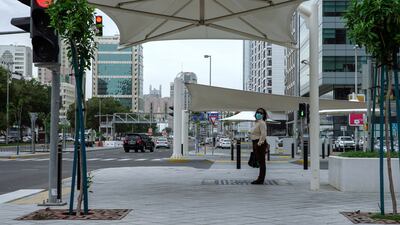For some people, for the first time for many months, it will be all about taking baby steps towards pre-pandemic lifestyles. For instance, many students and teachers will return to in-person education and many employees will be back around the conference table, having face-to-face meetings for the first time in ages. We might even fail to recognise some colleagues without their now-familiar Zoom backgrounds.
Around 18 months ago, we had to adjust to online learning and remote working. For many of us, this transition was stressful. Now, as we slowly start to reopen and return to normal, we might experience what mental health professionals call re-entry anxiety.
Why should something seemingly desirable – the return to pre-pandemic normality – be stressful? The answer lies in the definition of stress. In 1936, Hungarian-Canadian endocrinologist Hans Selye first applied the engineering term stress to human health, describing it as “the non-specific response of the body to any demand for change”.
The keywords in Selye’s definition are "change" and "non-specific". Any type of change can trigger stress, even desirable transitions like the lifting of pandemic-related restrictions, and our reactions to change vary. One man’s excitement is another man’s panic; one woman’s sorrow is another woman’s rage.
Some of us will find it a challenge to return to old routines. For example, we might have to change the way we dress (back to business attire), how we communicate (no more being on mute with the camera off), and increase the number of people we interact with each day.
Although the context is very different, psychologically, our re-entry is like when an inmate is released from prison. Reanxiety or “gate-fever” is common among former prisoners, struggling with fears about life without lockdown and their ability to readjust to the social world beyond the prison walls. Some prisoners become institutionalised, finding it hard to leave the bars behind – “free but still walking the yard”, as the saying goes. I suspect this might become the case for some people who struggle to adjust to emerging post-pandemic realities.
Many of us are now in that transitionary space, leading to a post-pandemic society. Re-entry anxiety is a normal and healthy response to such a situation. Anxiety is the body’s way of telling us to keep our eyes wide open, to tread lightly and to take care of ourselves. For most of us, anxiety will gradually fade, lessening in intensity with the passage of each catastrophe-free day.
Re-entry anxiety, however, may become overwhelming for some adults and children, and our avoidant reactions – escaping, hiding, fighting – may become problematic. In such cases, mental health professionals might start to talk about adjustment disorder: an unhealthy or excessive emotional response to a stressful event or life change. At the beginning of the pandemic, when movement restrictions were first being enacted, we saw an understandable rise in adjustment disorders. Without a doubt, at the back end of the pandemic, we will see the same thing too.
There is lots of advice on the internet about how to manage a healthy transition; the best of it focuses on the need to start small and go slow where we can. Many organisations are helping support this approach by following a flexible and phased return to the workplace. This is like the halfway house concept, transitional residences that help ease former inmates back into society.
Beyond phased returns, some organisations aim to improve access to well-being services such as counselling and mindfulness programmes. Employees can help by being kind to each other, giving ourselves permission to feel anxious and reminding ourselves that it is OK to feel this way, even if others don’t.
In cases where re-entry anxiety becomes overwhelming, we can also help ourselves by seeking professional support. Research evidence suggests cognitive behavioural therapy (CBT), for example, is the gold standard for anxiety disorders. CBT helps many people learn effective anxiety management skills. Similarly, mindfulness-based interventions also help people cultivate healthier relationships towards anxiety, identifying it earlier and responding to it in more creative and adaptive ways.
The UAE is among the countries leading the vaccine rollout, becoming one of the most vaccinated nations on Earth. The resuming of daily life and the return to normal are coming soon and we need to prepare for this psychologically. While many of us will find it difficult to adjust, some of us may even be overwhelmed. Many of us will find adjusting to the re-entry difficult, and some of us may be overwhelmed. We need to ensure that mental health support is available and accessible to all.


